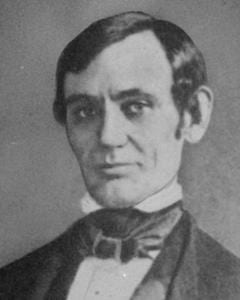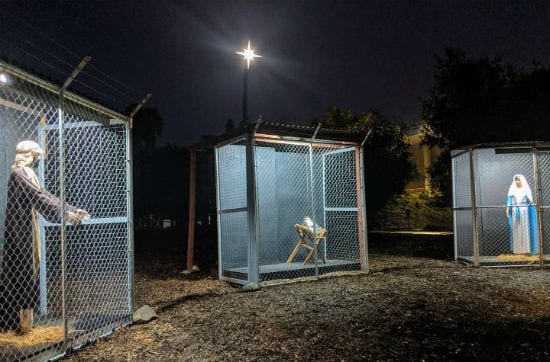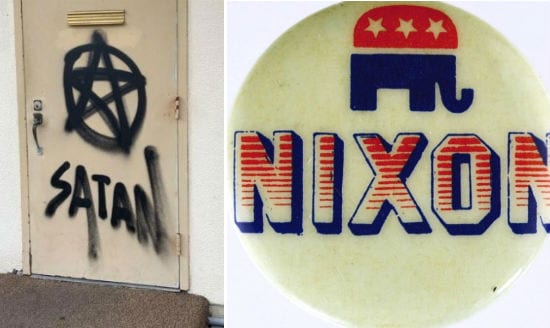From a report on President Bush's visit to Lancaster County, Pa., in Lancaster New Era:
Veteran Jake Caldwell, 42, of Lancaster, held up a sign that stated "Stop the war" as he loudly questioned the existence of weapons of mass destruction in Iraq.
"I feel the American public’s been duped," Caldwell said. "I think it's pretty obvious. If you don’t see that, I think you're in denial."
Caldwell's three points are all exactly right: 1) the public has been duped; 2) it is obvious; and 3) those refusing to accept this are "in denial."
But this is exactly the problem. It's never easy to accept that you've been duped — especially when you've been duped on a massive scale. And the fact that it's pretty obvious only makes it harder to accept. Thus the great allure — and the great power — of denial.
This is how con artists make a living. They rely on the fact that their victims don't want to accept even to themselves — let alone to the police — just how thoroughly they've been hoodwinked. Victims want to cling to their pride. They want to be able to look in the mirror and see a person who wouldn't have fallen for the ruse they just fell for. They refuse to accept that they are victims — even if that means embracing irrational explanations and shifting to a kind of unreality. They refuse to accept the shame that accompanies admitting "I was duped," and so they compound that shame by duping themselves even further.
Typical con artists prey on people's naivete and on human weaknesses like greed and a willingness to game the system for the promise of a free lunch. The Bush administration and the "Vulcans" and neocons who duped the American public into an unnecessary and costly war also preyed on naivete, but they also exploited some of the public's more admirable traits — their patriotism, their trust and their concern for security in a post-9/11 world.
Friday's Senate report was just the latest in a long line of harder-to-deny assessments clearly stating that, in Caldwell's phrase, "the American public's been duped." As The Washington Post's Milbank and Pincus reported:
Yesterday's report by the Senate intelligence committee left in shreds two of the Bush administration's main rationales for the war in Iraq: that Iraq had illicit weapons and that it cooperated with al-Qaida.
The conclusions are not earthshaking by themselves. Although President Bush and Vice President Cheney have not abandoned either rationale, both were already tattered after similar doubts were voiced over many months by U.S. weapons inspectors in Iraq, the commission probing the Sept. 11, 2001, attacks, CIA officials and others.
The question now — and probably the question on which November's election hangs — is how the American public will respond when confronted with these shreds and tatters.
Some will respond like Jake Caldwell. They will recognize that what they were told about this war beforehand cannot be reconciled with reality. And they will demand accountability for this mistake — the biggest mistake a nation's leaders can make.
But, as the Lancaster paper reported, people like Caldwell were outnumbered on the president's motorcade route. For many people — and perhaps for the majority of voters come November — the fantastic claims of Bush's con game will seem more pleasant than the uncomfortable reality that we were duped. They will conclude that the members of the Senate Intelligence Committee — like Hans Blix, Mohamed ElBaradei, the U.N. Security Council, the CIA, Anthony Zinni, Tom Clancy, Tom Kean, the 9/11 widows, David Kay, Richard Clarke, Jake Caldwell, Fred Clark and quite possibly you — are liars who hate America.
"It's pretty obvious," Caldwell said. It may be so obvious that it is impossible to accept.












